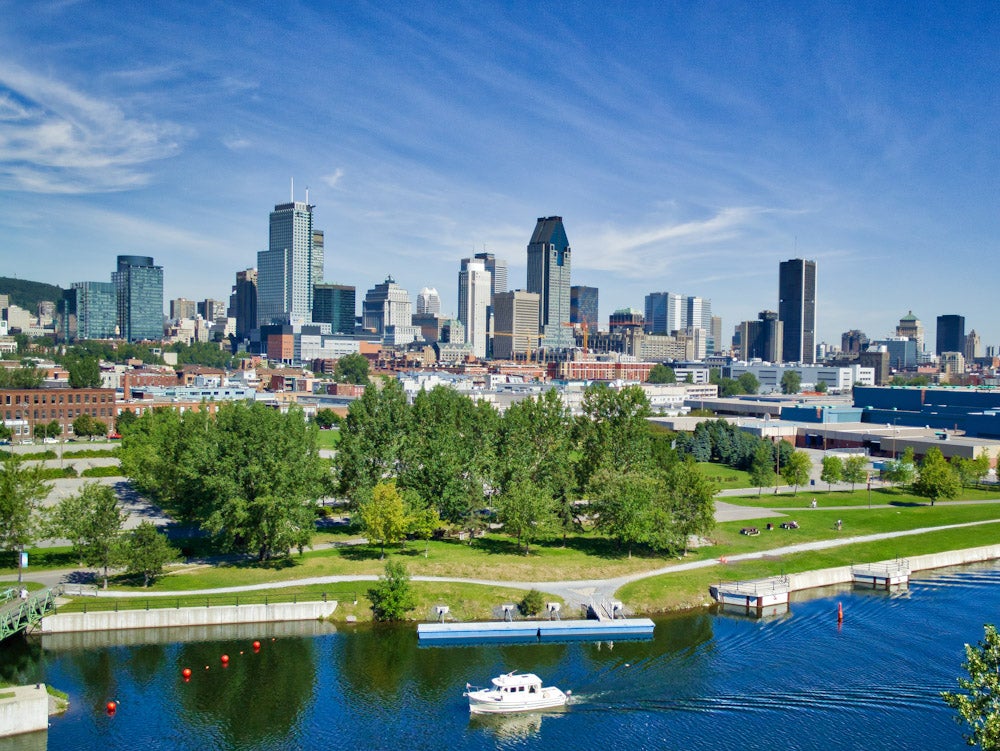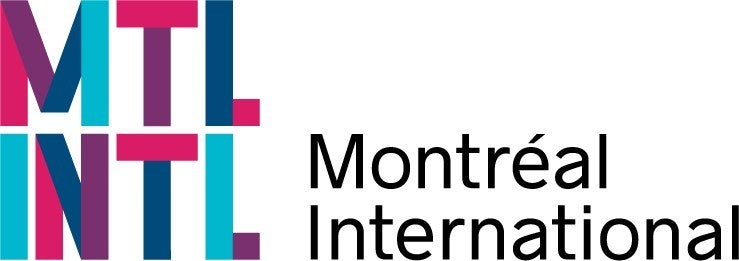
The momentum for sustainable investment is building quickly in Montréal, and that is no coincidence.
A prime example of Montréal’s growing status as a sustainability hub came in the fall of 2021. As world leaders gathered in Glasgow, Scotland, for COP26, one announcement resonated deeply within financial communities worldwide. This was regarding the choice of the host city for the newly created International Sustainability Standards Board (ISSB), whose mandate is to set sustainability disclosure standards for companies around the world.
The IFRS Foundation, which heads the ISSB, declared that board members would be based out of Frankfurt, Germany, with an office of equal importance in Montréal. How did Montréal achieve this?
To the financial community in the metropolitan area, which has 4.3 million residents, the decision was a welcome endorsement but not exactly a shock. After all, Montréal is a hive of activity when it comes to sustainable finance.
“Québec represents 42% of total Canadian responsible investment asset management,” explains Jacques Deforges, CEO of Finance Montréal. “Montreal benefits as well from a large and diversified financial sector that drives innovation in environmental, social and governance (ESG) practices. Our expertise is very strong and well-regarded.”
This perspective is shared by Teodora Toteva, director of business development in clean technologies at Montréal International, who sees a “buzz” around sustainability and, more specifically, projects that apply technology to develop environmentally friendly practices.
“Montréal is attracting a growing number of cleantech-related projects in a wide range of sectors, from green finance to AgTech, including hydrogen, building decarbonisation and electric transportation,” she says. “Five years ago, major corporations across various sectors started opening research labs in artificial intelligence (AI) in Montréal. Today, we are seeing the same phenomenon with cleantech.”
For instance, last summer, JLL and Alstom both announced new centres of excellence in sustainability – one in commercial real estate, the other in rail mobility – in the Greater Montréal area.
Where is the buzz around sustainable investment in Montréal coming from? Part of the answer lies in strong tech ecosystems fuelled by qualified talent and generous government incentives.
A booming cleantech industry in Montréal
Montréal has 15 university campuses, anchored in a province where R&D investments are an estimated C$10bn per year, higher than any other Canadian province in terms of percentage of gross domestic product. This infrastructure has attracted several private-sector investments, from start-ups to multinationals, leading to the development of strong ecosystems, most notably in AI and technology.
Today, those ecosystems develop clean technologies in a wide variety of industries including decarbonisation of buildings. Another application can be found in the region’s agri-food sector where billions of dollars are being pumped to support the digital transformation of the industry.
Furthermore, Quebec is the top province in Canada for vehicle electrification with the largest network of electric stations in the country. Its public transportation networks are also quickly adopting sustainable mobility technologies including electric buses fuelled by the province’s 99% renewable hydropower.
In recent years, all levels of governments have developed ambitious plans to develop a green economy, backed by some of the most generous financial incentives for cleantech and decarbonisation-related projects.
“Both the private and public sectors are mobilised to make sustainability a key element in economic development, while businesses that develop environmentally friendly solutions find a strategic domestic market,” explains Toteva.
Another strong and unique asset in Montréal is its network of international organisations mandated to tackle environmental issues. Approximately a dozen of these organisations, including the ISSB, have chosen the city over the years to tackle issues such as climate change and biodiversity.
“The difference between Montréal and other major centres for investors lies in our ecosystem,” says Toteva. “I challenge you to find another city that boasts some 15 university campuses that support R&D in key sectors, a dozen international organisations focused on sustainable development issues, a mobilised private sector combined with governments that offer some of the most generous incentives. Montréal’s ecosystem is both complete and collaborative.”
ESG considerations: essential for sustainable investment
As global climate action becomes a priority, investors are increasingly making decisions based on long-term environmental considerations.
That is what Anne-Marie Hubert, managing partner at Ernst & Young (EY) Canada, has been noticing. Lately, she says she has been experiencing “exponential demand” from clients related to ESG practices.
“The fact that climate risk is now considered a systematic risk to the financial system and forces central banks to act – combined with global investors acutely aware of the need to consider material ESG metrics to evaluate the value of companies they invest in – is now creating exponential demand in a field that is really appealing for our people,” explains Hubert.
As head of EY for Eastern Canada, Hubert has been positioning Montréal to attract projects linked to sustainability, including the ISSB.
“The fact that the IFRS foundation chose Montréal to establish its presence in the Americas is a testament to the strength of our local ecosystem,” she adds.
As capital is expected to increasingly flow towards sustainability-related projects, Montréal is well-positioned to respond to the needs of investors.
To find out how Montréal can help your business increase its sustainability and profitability, download the document below.


